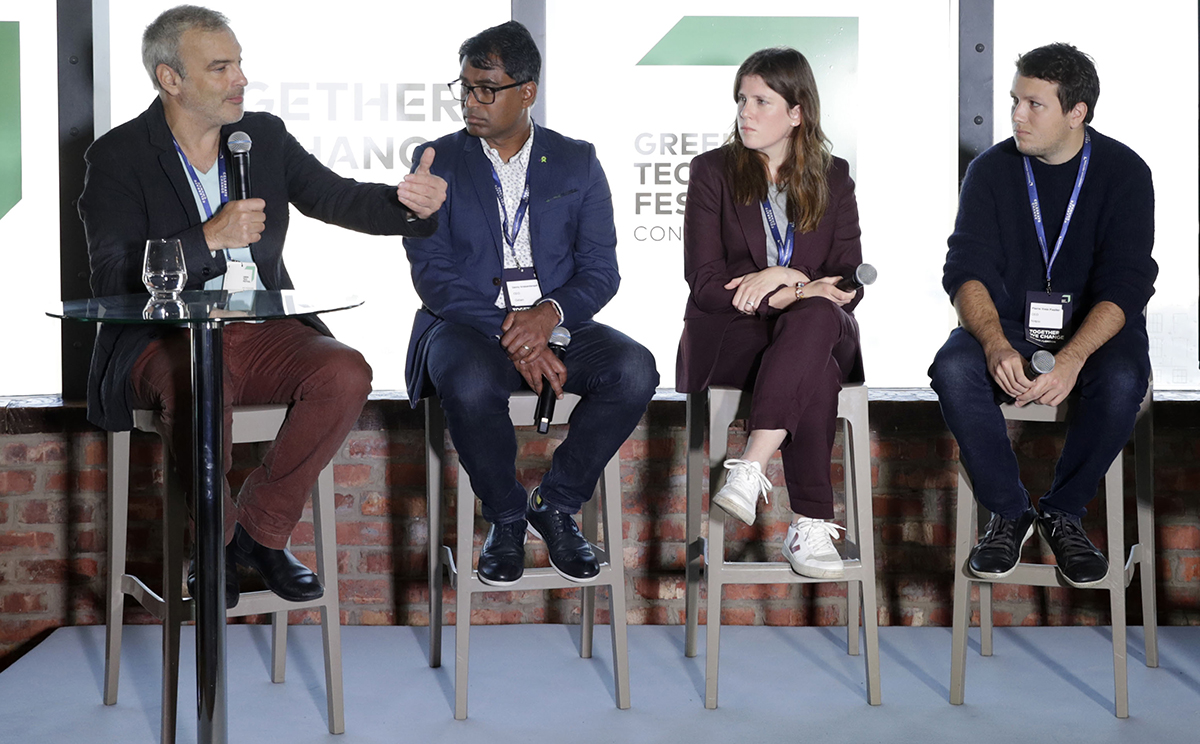 Dimitri Zenghelis, Chair of the Responsible Wealth Committee at CapGen, is one expert in the concept of a zero-carbon economy. A PPE Oxon alumnus, Zenghelis is a lauded academic, entrepreneur, and advisor on fiscal policy – and that’s before we get on to his work as a leading authority on mitigating the economic impact of climate change. He speaks to LUX Contributing Editor, Samantha Welsh, about investing in the green transition and why it poses an opportunity, not a risk
Dimitri Zenghelis, Chair of the Responsible Wealth Committee at CapGen, is one expert in the concept of a zero-carbon economy. A PPE Oxon alumnus, Zenghelis is a lauded academic, entrepreneur, and advisor on fiscal policy – and that’s before we get on to his work as a leading authority on mitigating the economic impact of climate change. He speaks to LUX Contributing Editor, Samantha Welsh, about investing in the green transition and why it poses an opportunity, not a risk

Dimitri Zhenglis
LUX: Are we collectively making a fast enough transition to make our contribution toward a net zero economy?
Dimitri Zenghelis: It’s easy to get despondent. Despite laudable commitments across the world to meet net zero economic pathways, actual commitments on the ground fall well short of delivering that target. And yet, there has been remarkable progress over recent years. The sheer scale of the low-carbon transition has generated productivity-enhancing network effects. This in turn drives the positive, reinforcing feedback where deployment induces cost reductions, and cost reductions incentivise deployment. As a result of this virtuous innovation cycle, whether or not you care about the climate, the world is about to receive cheaper electricity and better performing more efficient cars.
Follow LUX on Instagram: luxthemagazine
LUX: In cost benefit terms, surely there is a fear that those who will be last to take on the costs of changing course will be the winners in the interim?
Dimitri Zenghelis: There will be carbon-intensive sectors that will continue to operate over the transition. It is essential that we pay as much attention to decarbonising those areas that are difficult to tackle as emergent clean sectors, which are already close to net zero. Incentives need to be carefully thought through to ensure the most carbon entangled sectors and regions have incentives to change course. Without doing so, it will be impossible to meet our net zero target.
In reality, however, those who are last to take on the costs of changing course are likely to be the ones that will be saddled with the redundant, devalued and stranded assets with a limited role in the economy of the 21st century. If the transition to a resource efficient, zero carbon economy is inevitable (and I argue that it is), then managing that transition and staying ahead of your competitors is the surest way to profitability.
LUX: What other risks are there to a green transition?
Dimitri Zenghelis: The costs and benefits are not evenly spread and the distributional consequences of the transition to a more resilient low carbon economy need to be considered carefully. This means compensating, reskilling and retooling those who stand to lose out, enabling them to participate in the new economy and provide the jobs of the 21stcentury. It also means supporting overstretched consumers who may face higher charges to fund transitional infrastructure investment. Ensuring a just transition will be central to maintaining social cohesion. This is mostly about politics, after all.

LUX: In the context of intergenerational wealth transfer, have you noticed any significant emerging phenomena in terms of green investment?
Dimitri Zenghelis: There is definitely a generational shift going on. Younger investors are keen to put their money into sectors that have a long-term future and which provides sustainable wellbeing and prosperity. Employers, too, realise that in order to attract the brightest and the best, they will need to make sure that their business strategies are compatible with the aspirations of young people, which requires attention to matters of sustainability and inclusivity.
I also think that the younger generation have a far better understanding of the opportunities associated with the resource efficient, low carbon transition. They are less wedded to the smokestack technologies of the past and are genuinely excited about the massive potential for new technologies, institutions and behaviours which can offer sustained returns to investment.
LUX: How do you manage the diversity of potential strategies you pursue?
Dimitri Zenghelis: There’s no shortage of sectors to invest in, but the choice of sectors is not that difficult given the obvious overlaps. When it comes to sustainability, the whole is greater than the sum of the parts.
Take, for example, decarbonising transport. Future innovation pathways will include the technological greening of vehicles, starting with cars and moving to haulage, as well as a shift from cars to other transport modes, and a reduction of mobility behaviour. Overlying all of this are the technologies of the fourth industrial revolution, with a strong role for digital machine learning, artificial intelligence, big data and so forth.
This is not just about a green roof here, or an electric vehicle there. This is about an integrated transition with complementary investment across a swathe of assets, including natural capital and the protection of renewable resources – without which all aspects of economic activity and wellbeing are existentially threatened.

The Green Awards London at Millbank Tower on November 05, 2021, London, England. Photo by John Phillips/Getty Images for Greentech Show GMBH
LUX: Through your fellowships, research publications, and political advisory, you are leading on climate crisis and strategies to mitigate risk. How do you get from evaluating the macroeconomic aspects of climate change to designing policy regimes for tackling the harmful effects?
Dimitri Zenghelis: Politics is at the heart of this. There are switching costs and behavioural inertia which prevent the economy transitioning to better technologies and networks. We are already seeing the benefits from renewables and cars in providing cheaper electricity and better performing vehicles. These are things humanity should have invested in anyway, regardless of any concern for the planet. Yet it requires large scale public intervention through standards, regulations and subsidies to deliver this now irreversible change. No economists predicted it and the market alone would never have delivered it.
It turns out that the main barriers preventing a rapid transition are not economic or technological, they are cultural, behavioural and institutional. That’s why leadership from politicians, mayors, businesses and investors matters in steering and designing the society of the future, while ensuring that everyone has the skills and support to benefit from the opportunities that this change delivers.
Read more: Justin Travlos on Responsible Investment Strategies
LUX: Why can a clear policy steer create an opportunity rather than a risk?
Dimitri Zenghelis: Credible policy intervention can provide investors and companies with clarity and confidence that a low carbon future will be a profitable one. Mixed and muddled signals raise the cost of capital as investors seek to cover policy risk which they do not own.
Once they reach a tipping point, expectations can transition rapidly to the new equilibrium, and technologies are enabled to switch quickly from one network to another. Public intervention allied with corporate leadership are the drivers of change, as well as a consequence of it.
LUX: You studied Philosophy, Politics and Economics (PPE) at Oxford University. How has that informed your career?
Dimitri Zenghelis: It’s interesting that you mention my degree in PPE. For the most part, this is a generalist degree that is seen as a signalling device to show that people can thoughtfully entertain and apply ideas rather than having any kind of practical application. And yet, when it comes to issues of sustainability and climate change, the story of how we value different assets, and the political choices we make to reduce emissions while generating productivity, jobs and competitiveness relate to all three constituent parts of that degree. It was an interest in the politics of people’s wellbeing, income, jobs, inequality and poverty that first led me to enter the field of economics.







Recent Comments